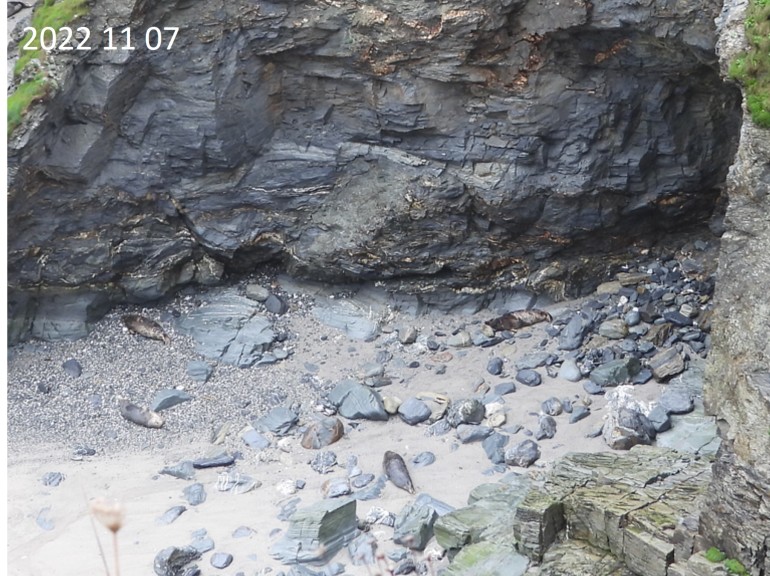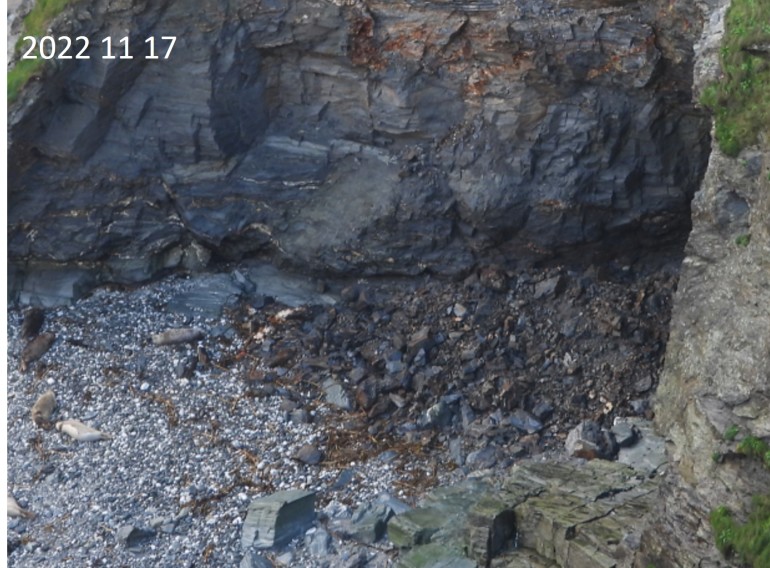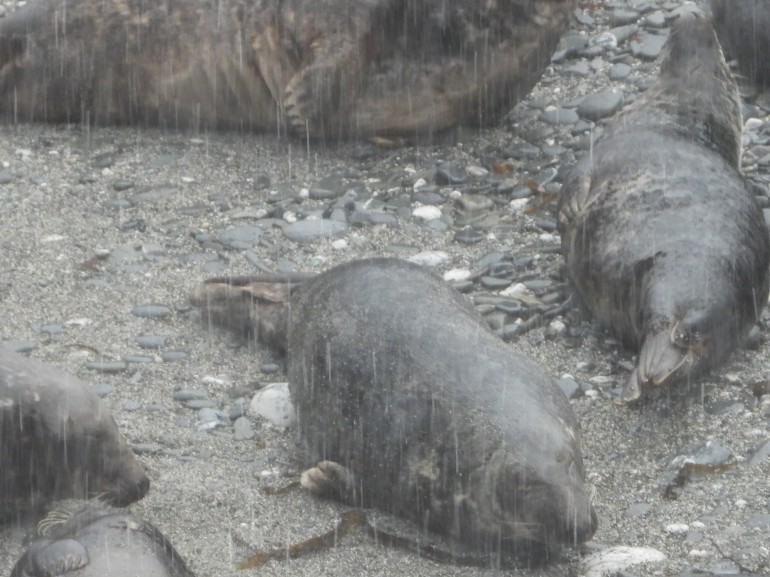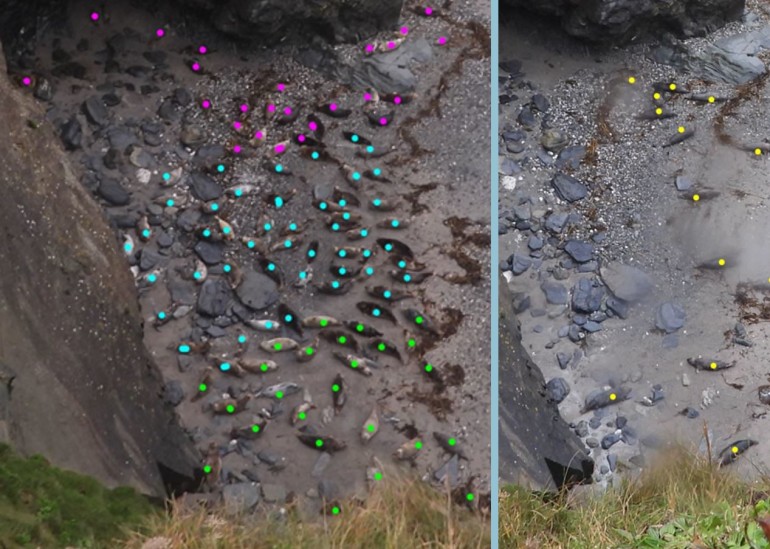Climate Change
Climate change is affecting us all! To preserve a liveable planet we need to limit global warming to 1.5 degrees. Already the planet is 1.1 degrees warmer than in the 1800’s. This is the greatest challenge humans face. We need to completely change the way we live our lives, particularly in terms of energy. Governments have set 45% net zero by 2030 and we are not on target.
Seals are already experiencing first-hand the effects of climate change and in some shocking ways. So we have decided to make Climate Change our focus for 2023.
Click here to watch our short film (6.5 minutes) Sea Change: Seals showing the impacts climate change is already having on our native seals.
We also have a free ‘Sea Change: Seals’ leaflet which you can read here. If you would like free copies to distribute around your patch, please email [email protected] saying how many with your postal address.
leaflet Extreme weather events, such as Storm Arwen, wash hundreds of maternally dependent white coat pups away their mums to die of starvation. SRT has shown how storms Ophelia and Brian in one year had a knock-on effect for mums, reducing pup numbers by over a third the following year.
Along with rising sea levels (15cm in Cornwall in the last 100 years), storms mean safe, sensitive seal sites on beaches, islands and caves are lost and coastal erosion rates are accelerating. Even small rockfalls kill seals, but a major fall prevented seals using one of 3 key SW UK haul outs for around 3 months. Given their seasonal patterns of movement, this likely upset the routine of hundreds of seals completely.
In 2022 at the key West Cornwall seal haul out we had 8 rockfalls on a single beach, compared to 4 in 2021 and 1 in 2020 and 2019!
Our more frequent hammering rain and pounding hail both disturbed seals causing major stampedes of up to 272 seals in a single short, sharp hailstorm! Add this to already high seal disturbance rates of 68% when people are present nearby.
Storms also rip up fishing gear which is lost, increasing seal entanglement rates (already the second highest rate for phocid seal species anywhere in the world.)
Flooding fills the sea with sediment making it harder for seals to see, feel and find their food. This is a real issue for weaned seal pups who are having to teach themselves to feed – what to catch and how!
Warming seas are more acidic affecting prey species already depleted by fisheries for seabed feeding seals. Warmer water also encourages more toxic algal blooms releasing domoic acid which seriously impacts seal nervous systems.
All of this means more seals get into trouble needing rescue, rehabilitation and, for the lucky ones, release. Climate change means we urgently need to expand our crucial UK seal rehabilitation facilities to cope and contribute to our seal conservation effort.
We can all help as well. We need to aim to use less, localise our lives, make our money count and spread the word by sharing this webstory! Whilst it can be hard to connect the dots, reducing our carbon footprints will help our UK speciality seals. But let’s not miss the point here…reducing carbon emissions is not just about helping seals and the planet, it is about saving ourselves. We need to ensure that our young loved ones have a chance at a great life on a liveable planet. So please, let’s take action now – one step at a time!
If you care about the youngsters in your life, we strongly advise that you to watch the last episode of the BBC’s Frozen Planet II on BBC iPlayer to learn more about climate change.
By supporting our marine conservation work with seals, you are helping us to give seals a voice and share their climate change experiences with statutory agencies and government decision makers at all levels. Buying gifts from our ‘One Stop Sealy Online Shop’ makes your money work smarter – you get a beautiful gift, we train marine conservation leaders of the future and seals get a voice!




